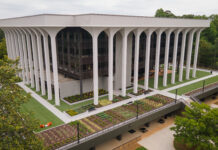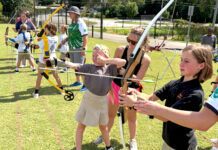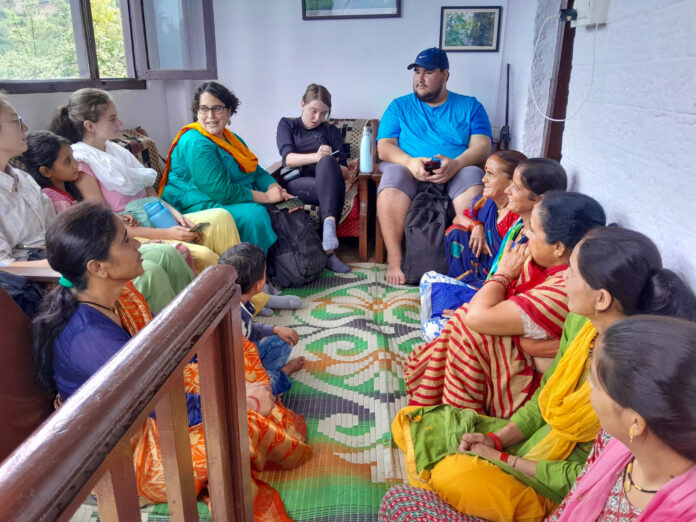
Mercer University students and faculty studied the impacts of tourism in northern India this summer as part of a new Mercer On Mission program.
The team worked in Uttarakhand, located at the foothills of the Himalayas, where tourism has grown rapidly over the last 10 years. Through interviews with residents and business owners, students identified development issues and proposed solutions to Chirag, the nongovernmental organization they worked with.
“Their mission is really to help people in the Himalayan region, so they focus on four core issues. There is natural resource management. They also do work on health and on rural livelihoods. They also do education,” said Dr. Rachael Goodman, assistant professor of global development studies. “Our goal was to see if we could contribute to any of those pillars, depending on what we found.”
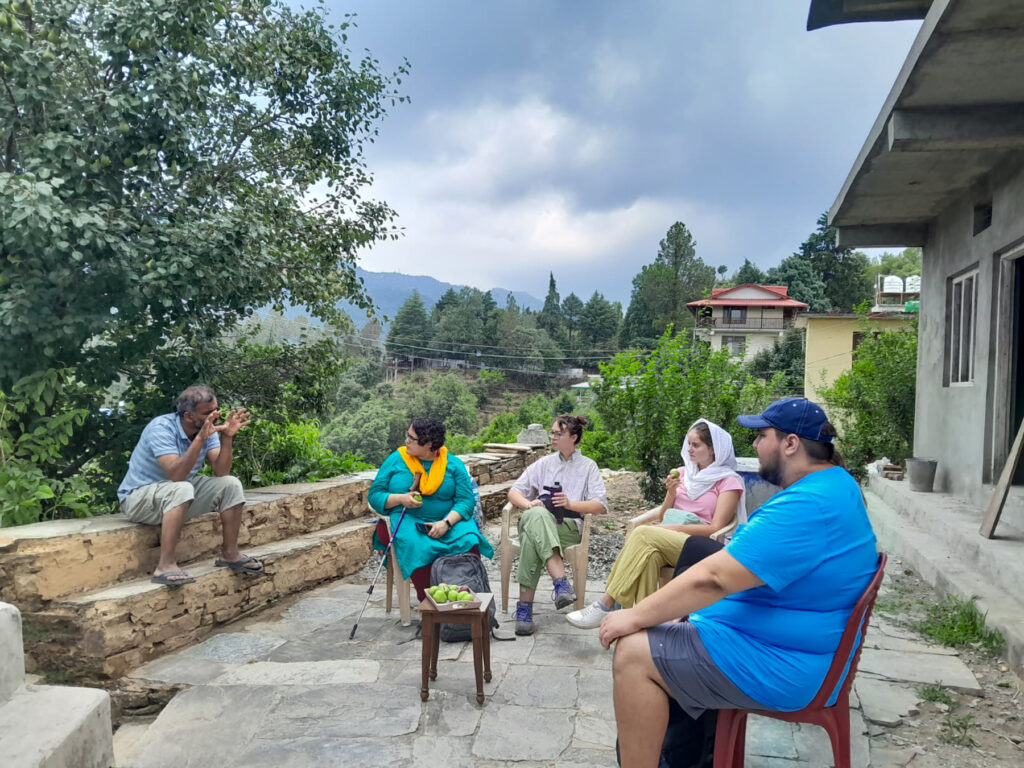
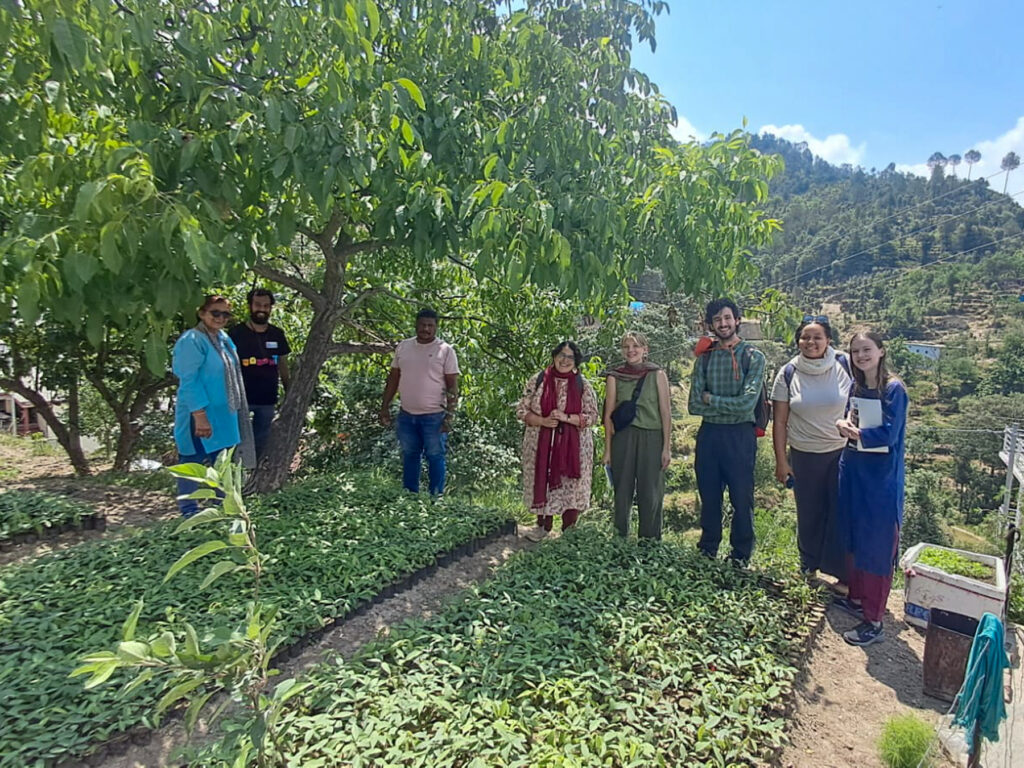
Twelve students participated in the program, which was co-led by Dr. Goodman and Dr. Crescent Rainwater, lecturer of English and liberal arts. Dr. Goodman, who has worked with Chirag since 2012 and was the only Hindi speaker in the group, conducted the interviews. Students developed questions, took notes, transcribed and analyzed the interviews to find the major issues people in the region faced.
“There was a lot of tension over land because some local people have been selling their land to people from other parts of India to build hotels or to build summer homes, and that tends to cause a lot of disruption in the communities,” Dr. Goodman said. “At the same time, people also recognized that there were a lot of economic benefits that could come from tourism.”
Water also was a major issue for residents, she said.
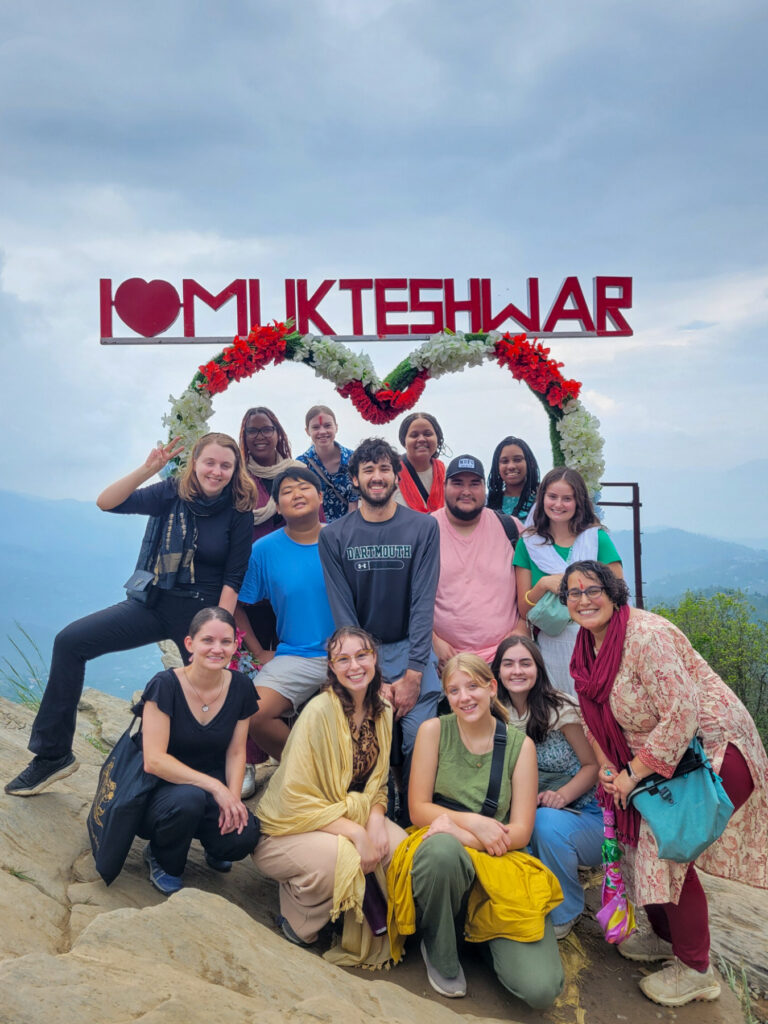
“The region’s water table has been drying out, and unfortunately, the tourists come during the dry season because that’s the hottest season, and they go up to the mountains to be cool,” she said. “They are putting more pressure on water at a time of year when there’s already less. And tourists use a lot more water than local people do just by virtue of doing things like showering versus taking a bucket bath, flushing toilets, and things like that.”
Students came up with possible solutions and presented them to Chirag.
“There were some long-term ideas like trying to advocate for new policies, especially around things like trash collection or trying to think about ways to manage tourism,” Dr. Goodman said. “They also came up with some practical ideas. There was some talk about trying to do some education campaigns around water usage and around wildfires because during the dry season that is also a concern.”
She said her favorite idea the students came up with was to create a certification for hotels that implement water-saving measures. Hotels could then tout the certification to tourists.
“That’s a bigger project, but that’s something the NGO can do. They can use their clout because they are a well-known local organization, and the hotels have an incentive to do it,” she said.
In addition, at Chirag’s request, students created templates for Chirag to use for its annual reports and prepared a report on the group’s education program, Dr. Rainwater said.
Overall, their primary contact at the organization was impressed by the students’ work, she said.
“He told the students that it was the best experience that they’d had with students coming from abroad,” she said. “He wanted all the slides and information that the students had created, so they could start considering the practical application of those ideas.”
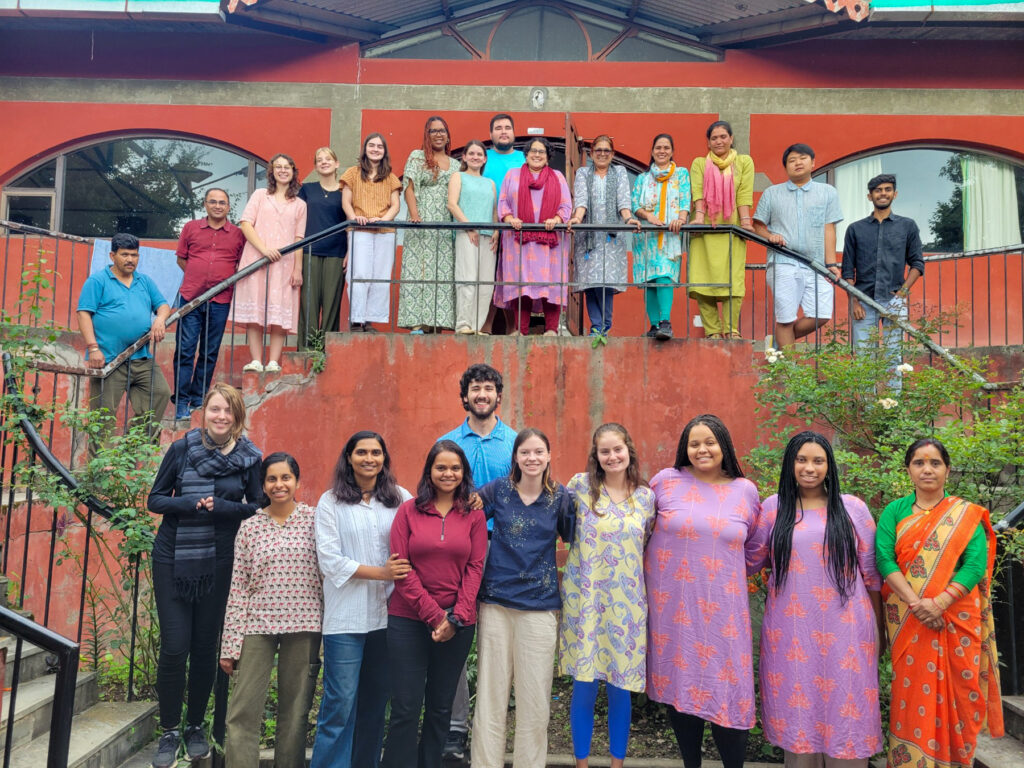
Amaya Shackley, a rising senior double-majoring in global health studies and anthropology, said the program gave her a deeper understanding of nongovernmental organizations and what it means to work for one.
“A lot of the people that we spoke to were actually very happy with the work that the NGO was doing. We wanted to highlight that they continue those efforts,” she said. “A lot of our solutions included education, such as pamphlets for private landowners so they understand what kind of damage they’re causing when they cut off access to springs, as well as education for hotels so they understand when they reroute water to their locations what it’s doing to the local people.”
Sophia Hall, a rising junior triple-majoring in political science, global development studies and media studies, said going into the program, she thought people would have an overall negative opinion of tourism. But that wasn’t necessarily the case.
“There were a lot of complaints about tourism, but many people embraced it as part of their lives. They said that it was a part of life in the Himalayas, and they just had to deal with the consequences,” Hall said. “Mainly people mentioned water shortages, road blockages, and general issues with infrastructure because the rural Himalayas aren’t made for that influx of people during tourism season. What we found is tourism isn’t really going away, but it can be less detrimental to the local people than it is right now.”
Andy Yin, a rising senior double-majoring in neuroscience and global health studies, said he enjoyed bonding with his peers. For two weeks, they lived together in a dormitory at Chirag, where they took bucket baths and used squat toilets.
“The best experience, I would say, was working with classmates outside of Mercer,” he said.
Prior to going to Uttarakhand, the team also spent time in Delhi. They visited historical, cultural and political sites and kept travel journals about their experiences.

